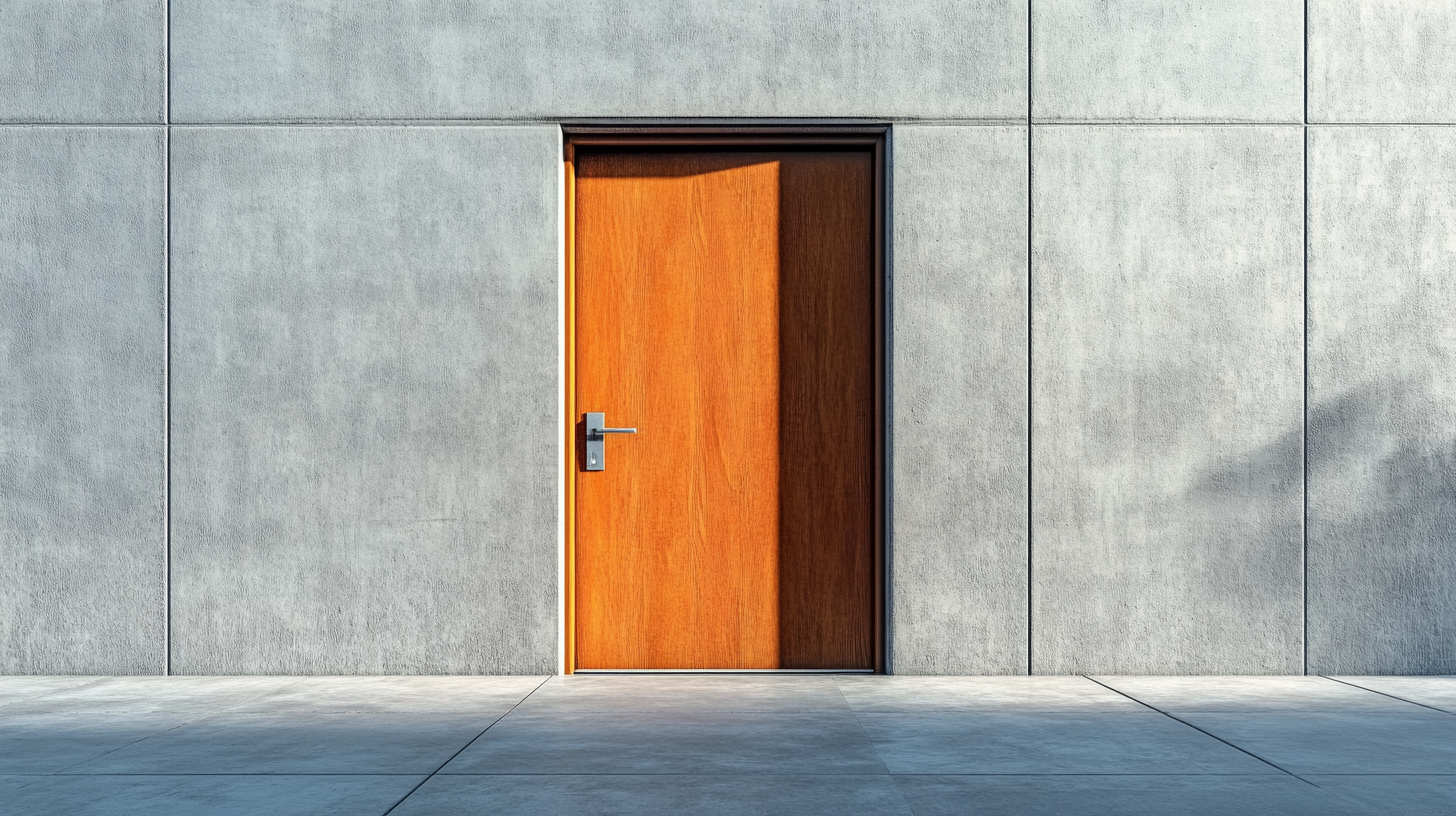Exploring the Benefits of Investing in Pre-Owned Door Manufacturing Machinery for Global Buyers
In recent years, the global door manufacturing industry has witnessed significant growth, with the market projected to reach USD 76.74 billion by 2025, according to a report by Grand View Research. This growth trajectory is prompting many manufacturers to explore cost-effective solutions, including the acquisition of used door shop equipment. Investing in pre-owned machinery not only helps reduce initial capital expenditures but also allows companies to maintain competitive pricing in a rapidly evolving market. Industry data suggests that manufacturers can save up to 50% compared to purchasing new equipment, thereby enhancing their operational efficiency and profitability.
Moreover, as sustainability becomes a central focus for businesses worldwide, the use of used door shop equipment presents an environmentally friendly option that aligns with contemporary manufacturing practices. As highlighted in a report from the Manufacturing Institute, nearly 92% of manufacturers recognize the importance of sustainability in their operations. By investing in refurbished machinery, global buyers can contribute to waste reduction while obtaining high-quality equipment that meets their production demands. This blog will delve into the myriad benefits of utilizing pre-owned door manufacturing machinery, exploring how it can enhance operational capabilities and foster sustainable practices in the industry.

The Growing Demand for Pre-Owned Door Manufacturing Machinery in Global Markets
The global market for manufacturing machinery has witnessed a significant shift in recent years, with an increasing demand for pre-owned door manufacturing equipment. This surge can be attributed to several factors, including cost-effectiveness, technological advancements, and the desire for sustainability. For many manufacturers, the acquisition of pre-owned machinery presents an opportunity to enhance production capabilities without the substantial capital outlay associated with purchasing new equipment. One of the primary drivers behind the rising interest in pre-owned door manufacturing machinery is the potential for substantial cost savings. Businesses can often purchase high-quality equipment at a fraction of the original price, allowing them to reinvest those savings into other critical areas, such as research and development or employee training. Furthermore, with the rapid pace of technological innovation, many manufacturers find that even slightly older machinery can still be highly efficient and meet production needs without significant limitations. Additionally, global buyers are increasingly recognizing the importance of sustainability in their operations. Purchasing pre-owned machinery not only helps reduce waste associated with manufacturing new equipment but also aligns with a broader commitment to environmental responsibility. As companies strive to minimize their carbon footprint, investing in pre-owned machinery becomes an attractive option that supports both their operational goals and sustainability initiatives. This growing emphasis on eco-friendliness underscores the shifting priorities of manufacturers worldwide, making pre-owned door manufacturing machinery a solution that meets both economic and ethical expectations.

Cost Efficiency: Analyzing the Financial Advantages of Used Machinery Investments
Investing in pre-owned door manufacturing machinery presents a compelling opportunity for global buyers looking to enhance cost efficiency. With the considerable upfront costs associated with new machinery, purchasing used equipment can significantly reduce initial capital expenditure. Companies can leverage these savings to allocate resources towards other critical areas, such as operational improvements and innovation. As businesses face the pressure of fluctuating market dynamics and competition, adopting a cost-effective strategy through used machinery investments can directly contribute to a stronger bottom line.
Moreover, the financial advantages of used machinery extend beyond mere savings on purchase prices. Organizations can benefit from the quick return on investment (ROI) associated with these assets. Pre-owned equipment often comes with established performance records, enabling buyers to make informed decisions based on proven capabilities. This not only lowers the risk associated with machinery procurement but also enhances operational efficiency, as businesses can ramp up production without the long lead times typically associated with acquiring new machines.
In a landscape where efficiency is paramount, the ability to invest in reliable, used door manufacturing machinery becomes a strategic advantage. It empowers companies to streamline operations while maintaining a focus on quality and customer satisfaction. As businesses increasingly seek solutions that align with financial prudence and operational needs, the case for pre-owned machinery stands strong, offering a pathway to sustainable growth and enhanced competitiveness in the global market.

Quality Assurance: Assessing the Performance of Pre-Owned Door Manufacturing Equipment
When considering investments in manufacturing machinery, the performance of pre-owned door manufacturing equipment stands out as a critical aspect. For global buyers, the assurance of quality is paramount, especially when opting for used machinery. This equipment can often provide exceptional value, but careful assessment is essential to ensure that the machinery meets rigorous production standards.
To begin with, buyers should conduct a thorough inspection of the pre-owned equipment. This includes not only a visual assessment of the machine's physical condition but also a review of its operational history. Understanding the maintenance records and any previous repairs can give insights into the reliability and longevity of the machinery. Additionally, engaging with past users or suppliers can offer valuable perspectives on performance metrics and the machine's efficiency over time.
Moreover, incorporating modern technology assessments, such as evaluating the equipment's adaptability with newer technologies, is crucial. Many older machines can be retrofitted or enhanced to improve efficiency and output quality. Buyers should also consider the availability of replacement parts and technical support, as these factors directly influence the machine's operational effectiveness in a global manufacturing environment. By focusing on these elements, global buyers can successfully navigate the pre-owned market and secure reliable door manufacturing machinery that aligns with their production goals.

Market Trends: The Impact of Technological Advances on Machinery Valuation
The global machinery market is witnessing transformative trends driven by rapid technological advances that significantly impact machinery valuation. As industries increasingly embrace automation and digital solutions, the value of pre-owned machinery is likely to experience fluctuations. Buyers seeking cost-effective options are tapping into the pre-owned market, where machinery equipped with the latest technologies can still provide substantial benefits at a fraction of the cost.
The Global Surface Mining Equipment market, valued at approximately USD 55.61 billion in 2023 and projected to reach USD 103.10 billion by 2033, exemplifies this trend. The anticipated CAGR of 7.10% reflects not only the growing demand for efficient mining solutions but also highlights the importance of investing in advanced machinery. As manufacturers innovate, buyers who invest in earlier models with technological updates can still gain considerable productivity while mitigating costs.
In parallel, the Global Electric Construction Equipment market showcases an impressive growth trajectory, with expectations of reaching USD 67.4 billion by 2033 at an 18.6% CAGR. The surge in this segment underscores a shift towards sustainable solutions, with electric machinery gaining traction due to their environmentally friendly features and operational efficiency. As manufacturers roll out equipment with integrated AI and smart functionalities, buyers in the pre-owned market can benefit from technologies that enhance productivity and simplify operations at lower capital expenditures. This combination of innovation and affordability is reshaping the machinery valuation landscape, presenting exciting opportunities for global buyers.
Environmental Sustainability: Benefits of Choosing Pre-Owned Over New Machinery
The shift towards environmental sustainability has become a priority for industries around the globe, with an increasing number of buyers recognizing the benefits of investing in pre-owned machinery. By opting for second-hand manufacturing equipment, particularly in door manufacturing, global buyers can significantly reduce their carbon footprint while also enjoying substantial cost savings. The production of new machinery often entails high resource consumption and waste generation, contributing to pollution and depleting natural resources. In contrast, purchasing pre-owned machinery allows for the reuse of existing resources, promoting a circular economy where materials and products are kept in circulation longer.
Moreover, the economic benefits associated with pre-owned machinery cannot be overstated. Many buyers are now seeking affordable alternatives to new equipment, especially as cost pressures intensify across various industries. Second-hand machinery provides an opportunity to maintain high production standards without the hefty price tag associated with brand-new models. This aligns with a growing trend in manufacturing and other sectors to invest in sustainable practices that do not compromise on quality or performance.
As companies increasingly prioritize eco-friendly practices, choosing pre-owned equipment emerges as a responsible option that benefits both business and the environment. By making such sustainable choices, manufacturers can contribute to a broader effort of reducing waste and minimizing resource consumption, ensuring a healthier planet for future generations. As the conversation around sustainability evolves, the advantages of investing in pre-owned machinery will likely continue to gain traction among discerning buyers.

